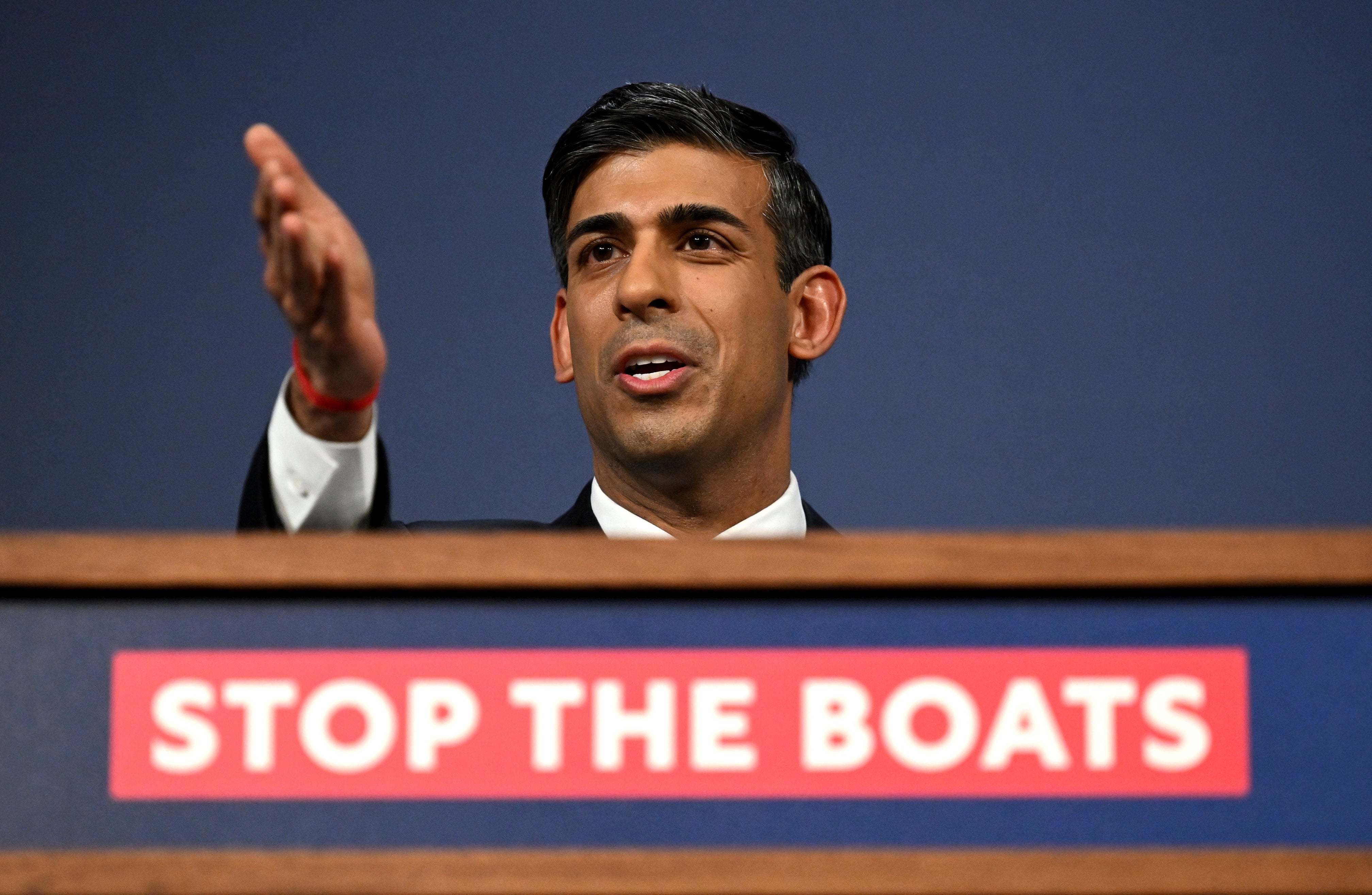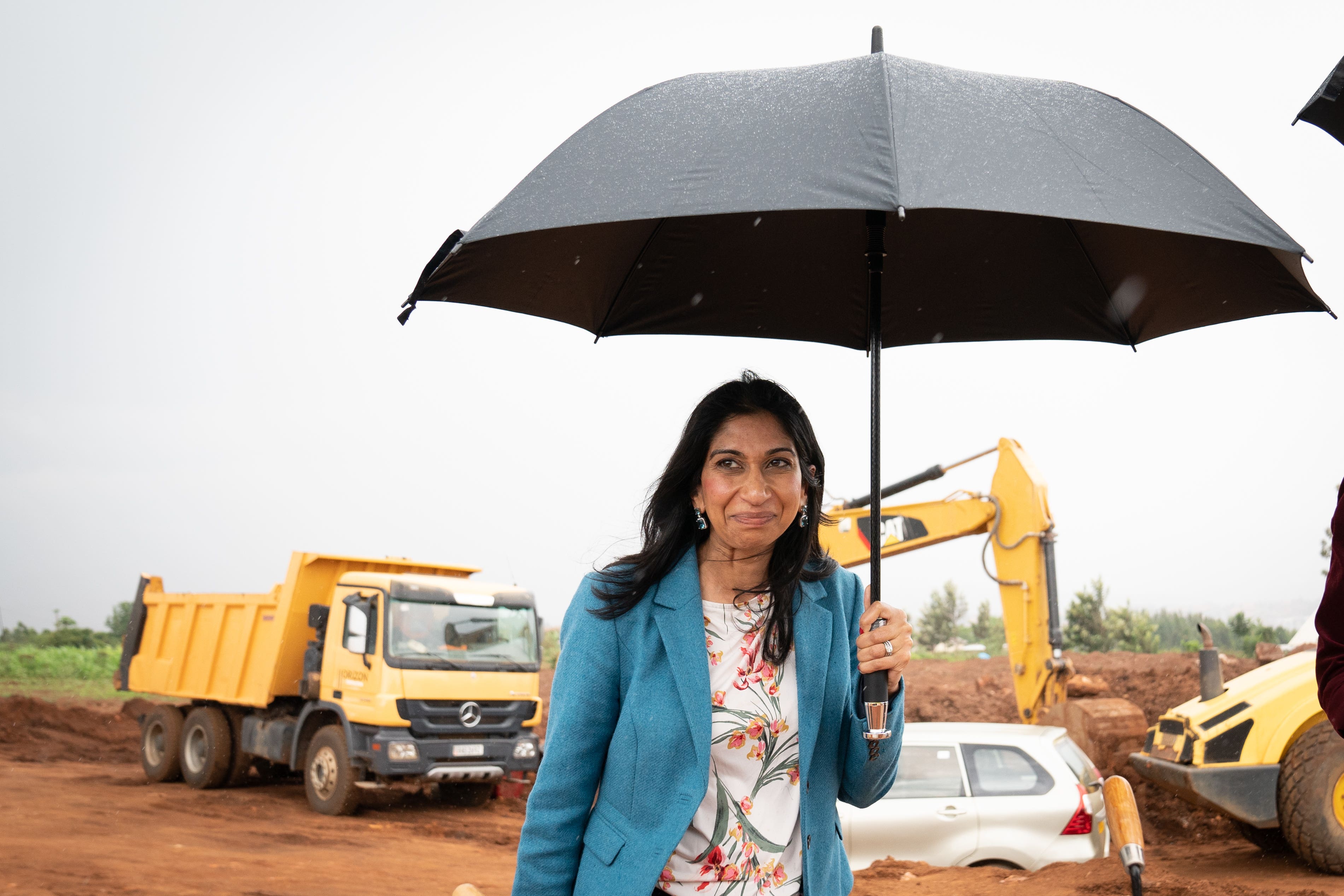Sunak’s push for European court reform on Rwanda flights knocked back
Council of Europe summit won’t be used to reform court rules, says host nation’s minister in blow for PM

Rishi Sunak’s plan to persuade fellow leaders to change European Court of Human Rights (ECHR) rules blocking Rwanda deportation flights was dealt a blow as summit leaders dismissed the idea of reform.
The prime minister is keen for the Strasbourg court – which is overseen by the 46-member Council of Europe – to change its rules to allow his government to send failed asylum seekers to the central African country.
But Iceland’s foreign minister, Thordis Gylfadottir, said that this week’s Council of Europe summit in Reykjavik would not be used to reform the rules covering the kind of orders that prevented the first deportation flight from taking off last year.
The prime minister appealed to the ECHR’s president, Siofra O’Leary, directly on Tuesday, but Ms Gylfadottir suggested that the council was not keen on reform and wanted to uphold existing human rights laws.
“The leaders are reconfirming their commitment to the common human rights protection system, and in particular, the court is a cornerstone of our protection system,” Ms Gylfadottir told BBC Radio 4’s The World at One programme.
The foreign affairs minister added: “But the next two days, the time we have, we are not using to reform certain articles in the court.”
Pressed on whether there would be any discussion of Mr Sunak’s call for reforms to how injunctions work, Ms Gylfadottir said: “I believe that there will be a discussion on it, but there will not be, I think, a real concrete outcome on reforming certain articles.”
Tiny Kox, president of the Council of Europe’s parliamentary assembly, warned Mr Sunak that Britain could end up like Russia if it chose to ignore the Strasbourg court.
“I think the British government knows there is no opt-out of your European Court of Human Rights ... We are not a cafeteria, where you can ask for the verdict of the court that suits you,” the Dutch politician told The Guardian.

Mr Sunak held a face-to-face meeting with Ms O’Leary about his desire to reform Rule 39, which allows a judge in the Strasbourg court to impose an injunction pending further proceedings.
The Sunak government wants a higher threshold for applicants seeking a Rule 39 injunction against deportation. It is also understood to want changes made that would allow the UK government to offer legal representation against injunctions.
Home secretary Suella Braverman claimed in March that she was “encouraged” by “constructive” talks with the Strasbourg court about an overhaul of the rules surrounding injunctions.
The ECHR – which would not comment on Mr Sunak’s discussions with its president in Iceland – said in March that it was carrying out a review of its procedures for dealing with interim measures. But the court stressed that this was “unrelated to any individual case or the position on interim measures of any one of the 46 member states”.

No 10 insisted on Tuesday that the court was “open” to discussions about reform. “On Rule 39, we believe that the Rule 39 system doesn’t currently meet a reasonable standard of natural justice,” said Mr Sunak’s official spokesperson.
He added: “It’s why we’ve had discussions with Strasbourg, and others, about reforms to ensure proper transparency and rights to challenge and appeal. We know they are open to that. They’re carrying out their own review on Rule 39. It’s a conversation the prime minister will be continuing today.”
No 10 said Mr Sunak and Ms O’Leary had “discussed procedures before the ECHR, which the latter regularly reviews, including Rule 39 interim measures”.

The Illegal Migration Bill aims to send asylum seekers who arrive in Britain via unauthorised routes back home, or to a third country such as Rwanda, as well as to cut the £5.5m daily cost of housing migrants who make it to the UK.
The PM told fellow leaders at the Council of Europe summit that the international migration system is “not working”, as he bids to fulfil his immigration pledge to “stop the boats” crossing the English Channel.
Mr Sunak said he had used his trip to Iceland to talk about how Strasbourg must conduct itself in a way that is “fair, transparent and effective” – describing his immigration plans as “novel” but “compliant with our international obligations”.
The PM, who also met with EU Commission president Ursula von der Leyen on the sidelines of the summit, said the UK has a “long track record” of leading reform linked to the ECHR, which it will be “building on going forward”. He added: “We have a track record of seeing change happen.”
But Iceland’s foreign minister said that this week’s conference will not “have a big focus on migration”. Ms Gylfadottir said: “This summit has not a big focus on that. The biggest focus is, of course, Ukraine, and then other issues such as AI and environment ... But I agree that [immigration] is an issue for Europe.”
No 10 said the government “remains committed” to reducing net migration, amid speculation that the number of migrants could pass the 1 million mark next year.
It follows reports that the Home Office has privately shared figures with No 10 that suggest that more than 1.1 million foreign workers and students could arrive legally in Britain in 2024-25.




Join our commenting forum
Join thought-provoking conversations, follow other Independent readers and see their replies
Comments